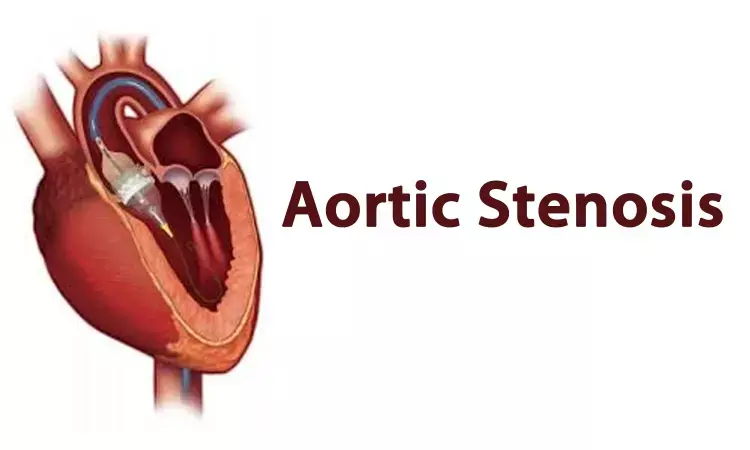- Home
- Medical news & Guidelines
- Anesthesiology
- Cardiology and CTVS
- Critical Care
- Dentistry
- Dermatology
- Diabetes and Endocrinology
- ENT
- Gastroenterology
- Medicine
- Nephrology
- Neurology
- Obstretics-Gynaecology
- Oncology
- Ophthalmology
- Orthopaedics
- Pediatrics-Neonatology
- Psychiatry
- Pulmonology
- Radiology
- Surgery
- Urology
- Laboratory Medicine
- Diet
- Nursing
- Paramedical
- Physiotherapy
- Health news
- Fact Check
- Bone Health Fact Check
- Brain Health Fact Check
- Cancer Related Fact Check
- Child Care Fact Check
- Dental and oral health fact check
- Diabetes and metabolic health fact check
- Diet and Nutrition Fact Check
- Eye and ENT Care Fact Check
- Fitness fact check
- Gut health fact check
- Heart health fact check
- Kidney health fact check
- Medical education fact check
- Men's health fact check
- Respiratory fact check
- Skin and hair care fact check
- Vaccine and Immunization fact check
- Women's health fact check
- AYUSH
- State News
- Andaman and Nicobar Islands
- Andhra Pradesh
- Arunachal Pradesh
- Assam
- Bihar
- Chandigarh
- Chattisgarh
- Dadra and Nagar Haveli
- Daman and Diu
- Delhi
- Goa
- Gujarat
- Haryana
- Himachal Pradesh
- Jammu & Kashmir
- Jharkhand
- Karnataka
- Kerala
- Ladakh
- Lakshadweep
- Madhya Pradesh
- Maharashtra
- Manipur
- Meghalaya
- Mizoram
- Nagaland
- Odisha
- Puducherry
- Punjab
- Rajasthan
- Sikkim
- Tamil Nadu
- Telangana
- Tripura
- Uttar Pradesh
- Uttrakhand
- West Bengal
- Medical Education
- Industry
High Plasma Lipoprotein(a) tied to faster hemodynamic progression in aortic stenosis patients: JAMA

Canada: A recent meta-analysis published in JAMA Cardiology has revealed an association between higher plasma lipoprotein(a) concentrations and faster rates of hemodynamic progression in aortic stenosis patients.
Further exploring the reduction of plasma lipoprotein(a) levels is crucial for advancing strategies in preventing and managing aortic stenosis, the researchers wrote.
Currently, no pharmacological treatments exist to slow hemodynamic progression of aortic stenosis. Plasma lipoprotein(a) concentrations reliably forecast the onset of aortic stenosis; however, its link to hemodynamic progression remains debatable. Considering this, Benoit J. Arsenault, Department of Medicine, Faculty of Medicine, Université Laval, Québec, Québec, Canada, and colleagues aimed to determine the association between plasma Lp (a) concentrations and hemodynamic progression in patients with aortic stenosis.
The study encompassed individuals diagnosed with aortic stenosis, drawn from five longitudinal clinical trials conducted between 2021 and 2023 in Canada and the UK.
Out of 757 patients enrolled, information on plasma lipoprotein(a) levels and rates of hemodynamic progression evaluated via echocardiography were accessible for 710 patients who constituted the subjects for this analysis. Data analysis spanned from March 2023 to April 2024.
The main outcome was hemodynamic aortic stenosis progression on echocardiography as evaluated by annualized change in peak aortic jet velocity, mean transvalvular gradient, and aortic valve area.
The following were the key findings of the study:
- Among the included patients, 70% were male and 30% were female. The mean age was 65.2 years.
- Patients in the top lipoprotein(a) tertile demonstrated 41% (estimate, 1.41) faster progression of peak aortic jet velocity and 57% (estimate, 1.57) faster progression of mean transvalvular gradient than patients in the bottom tertile.
- There was no evidence of heterogeneity across the individual cohorts. Progression of the aortic valve area was comparable between groups (estimate, 1.23).
- Similar results were observed when plasma lipoprotein(a) concentrations were treated as a continuous variable.
The findings showed that increased lipoprotein(a) concentrations were associated with more rapid hemodynamic aortic stenosis progression as evaluated by the peak velocity and mean gradient.
"Additional research is needed to determine if there is a causal relationship between elevated lipoprotein(a) levels and the progression of aortic stenosis. Furthermore, investigations are necessary to ascertain whether reducing lipoprotein(a) levels could potentially delay the advancement of aortic stenosis in patients with initially higher concentrations," the researchers concluded.
As the medical community grapples with rising rates of cardiovascular diseases, findings from studies like this systematic review and meta-analysis provide a critical framework for advancing the understanding and management of calcific aortic valve stenosis. By unraveling the complexities of lipoprotein(a) in this context, researchers aim to pave the way for more effective preventive and therapeutic strategies tailored to individual patient needs.
Reference:
Arsenault BJ, Loganath K, Girard A, et al. Lipoprotein(a) and Calcific Aortic Valve Stenosis Progression: A Systematic Review and Meta-Analysis. JAMA Cardiol. Published online July 17, 2024. doi:10.1001/jamacardio.2024.1882
Dr Kamal Kant Kohli-MBBS, DTCD- a chest specialist with more than 30 years of practice and a flair for writing clinical articles, Dr Kamal Kant Kohli joined Medical Dialogues as a Chief Editor of Medical News. Besides writing articles, as an editor, he proofreads and verifies all the medical content published on Medical Dialogues including those coming from journals, studies,medical conferences,guidelines etc. Email: drkohli@medicaldialogues.in. Contact no. 011-43720751


